Author Hanif Abdurraqib holds court on new basketball-themed book, mortality and more
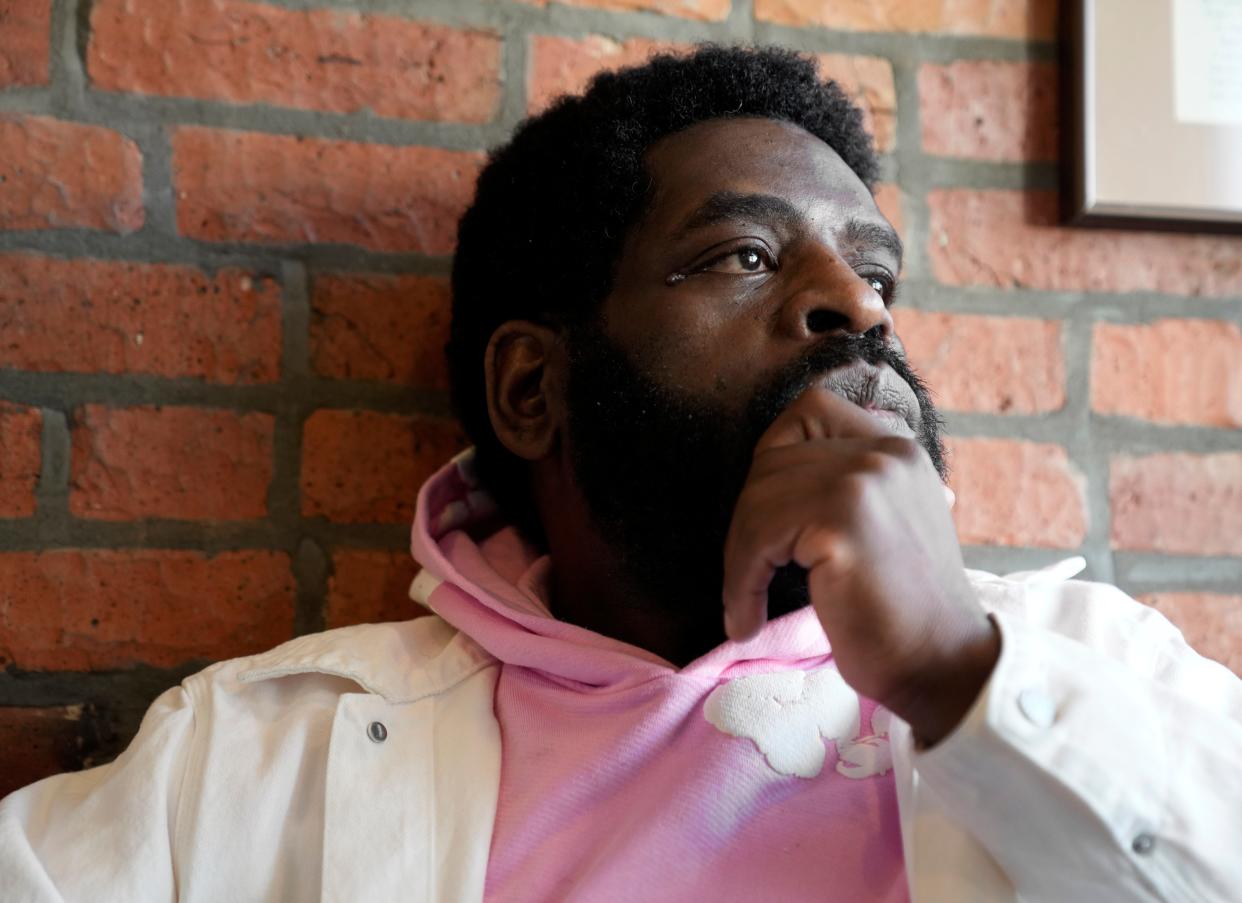
The early reviews of Columbus-bred writer Hanif Abdurraqib's next book are in and as with his previous offerings, critics are applauding:
“Lyrically stunning and profoundly moving … a formally inventive, gorgeously personal triumph.” — Kirkus Reviews
" ... not only the most original sports book I’ve ever read, it’s also one of the most moving books I’ve ever read, period." — Steve James, director of "Hoop Dreams"
"While nominally his next book is about basketball — like the rest of his writing, it’s also about everything else.” — NPR
Although Abdurraqib says he tries not to read too many reviews of his work, he agrees with NPR's assessment of "There's Always This Year: On Basketball and Ascension," due out on March 26 through Penguin Random House.
"(Critics) are shorthanding it as a basketball book, but this book can't just pursue the one thing," the 40-year-old essayist, poet and cultural critic said during a recent interview.
Ben Greenberg, Random House's vice president and editor-in-chief, agreed, saying Abdurraqib's books are too expansive to synopsize in a sentence or two.
"Like all Hanif books ("There's Always This Year") started as a seed of an idea — LeBron James — and grew into something far more vast throughout the course of his writing it," Greenberg said.
" … it still is a book about LeBron James, in a way, but it is also a book about getting older, and a book about the pride of coming from a place and what it means to stay there, and a book about people we lose along the way."
'A Little Devil in America': Abdurraqib's exploration of music, dance laced with memories
"There's Always This Year" is structured in quarters and minutes, like a basketball game, a sport he loves and has written about in previous works. In the book, Abdurraqib keeps several balls aloft as his thoughts pivot around central themes, including home (his love for Columbus is legendary), what it means to "make it," who deserves success, mortality and affording ourselves a measure of grace.
"I was considering time, mortality, and the mercies of aging when I didn't consider myself able to or interested in aging for so long," Abdurraqib said, explaining what compelled him to write "There's Always This Year."
"And also, of course, (there were) considerations of time as it relates to legacy, place, and personal mythologies."
A 2001 graduate of Beechcroft High School, Abdurraqib grew up on the East Side, which he calls "a kind of centralized hub for basketball," a world some youngsters dreamed of escaping for brighter lights in bigger cities, but which drew Abdurraqib back in 2017 after living in Connecticut for two and a half years.
"In the book, I try to deconstruct the idea of why 'making it' is aligned with the idea of getting out of a place," the Bronzeville resident said. "I've never wanted to leave Columbus.
"There comes a time in your life when you choose a place back."
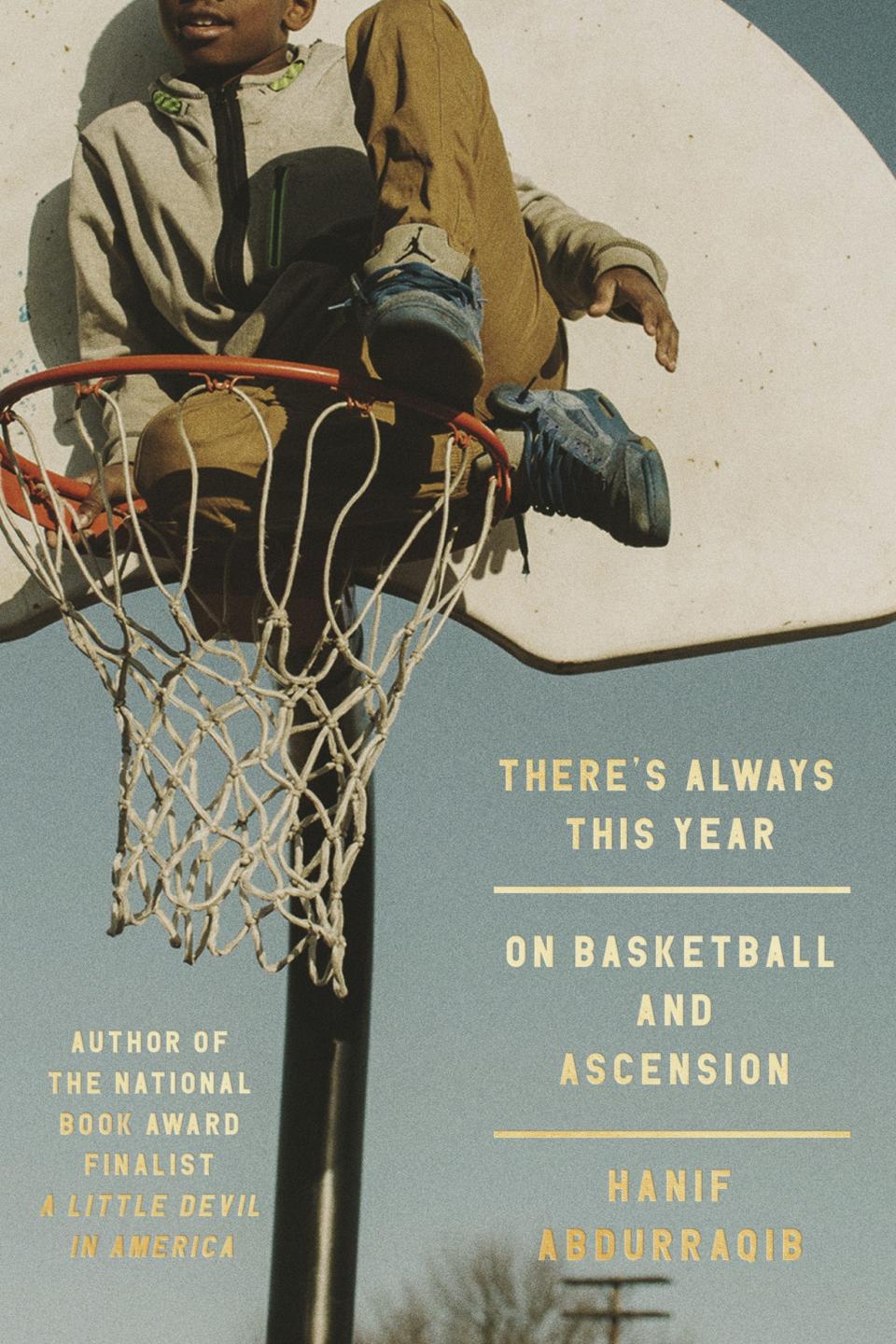
On mortality, basketball and grace
Now beyond the age his father was when he was born, Abdurraqib has begun to ponder his own mortality, but he doesn't exchange living in the here and now for any sort of existential crisis. "It's about drawing parallels between time and wanting one's time back without disregarding the present," he explained.
A conversation with Abdurraqib is like trying to grasp the wind in one's hand. He breezes easily from one topic to the next, thoughts pouring out as rapidly as his agile mind conceives them. But there's a purposefulness, a connective thread that weaves through his ruminations as again, he turns to basketball to draw an analogy between the sport and growing older.
"I saw a video of LeBron James in late 2020 wearing a mask because it was during the pandemic," he said. "When he took it off, his beard was grayer than I'd ever seen. If he's aging, what does that mean for me? He's seen as indestructible, but he is also aesthetically facing down time."
His musings on mortality give way to reflections on his father and how, through their bond, he's learning to cut himself some slack, as the saying goes.
"My relationship with my father is something I've reconsidered as I attempt to form a relationship with grace for myself. Often, we have a lot of grace for others, but we're harder on our past selves," he said.
His father still lives on Columbus' East side in the house where Abdurraqib, one of four children including a brother who lives locally, grew up. His mother died when he was 13.
"I wasn't a good kid — of course, the binary of good and bad is flimsy — but I was in trouble, in and out of jail when I was younger. I have a lot of gratitude for the grace (my father) showed me throughout my life.
"It would be nice if people pushed up against whatever door they have locked against grace for themselves."
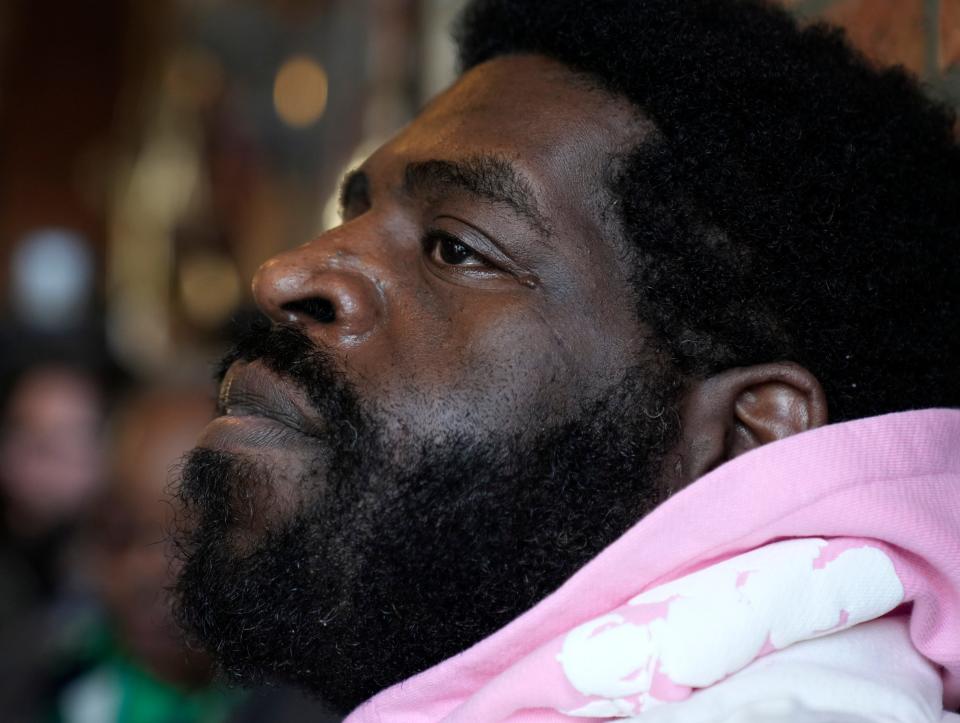
The genesis of a writer
You'd never know it from his extensive body of work and countless accolades, but Abdurraqib never dreamed of being a writer. In fact, he studied marketing during his time at Capital University in 2002 and 2003.
Despite not having literary ambitions as a youth, Abdurraqib personifies the idiom about the apple not falling far from the tree: His mother was a writer, the first he'd ever witnessed at work.
And like many writers-to-be, Abdurraqib was a voracious reader as a child, getting lost in the library stacks for hours. "My parents placed a lot of emphasis on us understanding what we read," he said.
He found writing — or perhaps it found him — as a twentysomething coming up in the punk scene, when he began writing for local zines.
At a low point in his life — "around 2004 and 2005," he said — Abdurraqib found himself evicted and sleeping in a storage unit, showering at a YMCA by day and writing by night as a way to distract his mind from the struggle of surviving.
Q&A: Author Michele Norris explores racial identity in 'Our Hidden Conversations'
"I got into (writing) late, around 2012. I liked the idea of delivering information and reporting on the state of Columbus," he said.
"Writing for zines led to writing album reviews, but one of my editors said my writing was too poetic, too meandering. So, I began to study how to wield poetics more effectively. I wanted to learn to write poetry. I built a school of my own."
Eventually, he began showing up at the now-defunct Writer's Block, one of Columbus' longest-running poetry open-mic nights, where he would ask other writers for books to read.
"I went to Writer's Block for the first time in 2012, after I'd started hosting my own poetry night at Travonna Coffee House and wanted to see other poetry in the city," Abdurraqib said.
"(Co-founder) Scott Woods welcomed me, championed my work when no one else did. It was a great first poetry home for me."
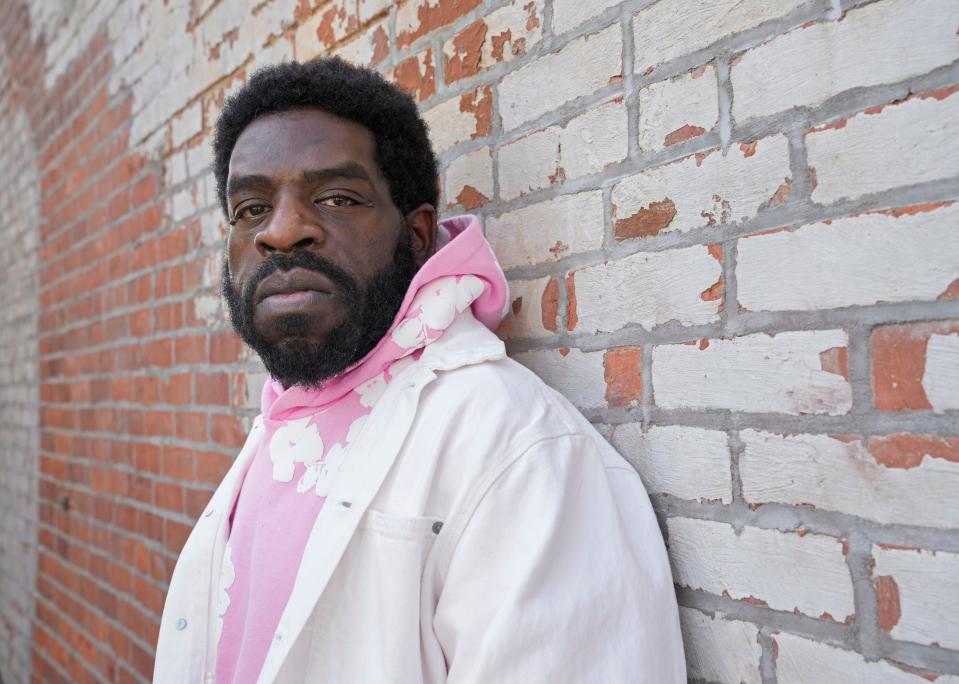
Fostering the future
One might expect an air of self-importance from a Carnegie Medal winner and MacArthur Fellow whose face is emblazoned on the People's Mural of Columbus at 1450 E. Main St., where it was installed in 2021. But Abdurraqib insists, "I am pretty unspectacular in a lot of ways."
He's equally as unassuming about his impact on the community, especially on young writers such as Kade Weinmann, who first met Abdurraqib as a high school junior in 2019.
“I was finishing up high school with the arts and humanities program I attended called The Mosaic Program. Here is where I learned of and eventually met (Abdurraqib). He would come to our class and do workshops/readings with us,” said Weinmann, lead singer for local band Cellar Dwellar.
Weinmann, who graduated from Central Crossing High School in 2021, said he didn't see much of the ever-busy Abdurraqib after high school, but remained a fan of his work, which greatly influenced Cellar Dwellar's writing. It was in September 2023 that the two reconnected when the band played at the annual back-to-school bash hosted by Abdurraqib.
Black History Month: 29 Black-owned Columbus businesses to support this February
"After the fact, (we) asked Hanif if he'd read and record with us the poem that started off the writing process, Weinmann said. "The next week, he joined us in Moonlight Audio studio and did just that, for a small local band he barely knew.”
Abdurraqib, who can be heard reading the spoken-word piece, "Ecorche," written by Weinmann, on Cellar Dwellar's album, "In the Shape of a Swan," was just as impressed with the band as they were with him.
"They came and played (at the back-to-school bash), and I really connected with them. I listened to the album, and I wanted to be a part of it," he said.
Helping other writers to create in a way that makes them feel empowered is crucial to Abdurraqib. "It's important for young people in this city to have people in their orbit who say, 'I want to be into what you're into,' and not dismiss them," he said.
"Sometimes it takes just one person to show interest — a high school teacher, an editor — to give them confidence and a roadmap."
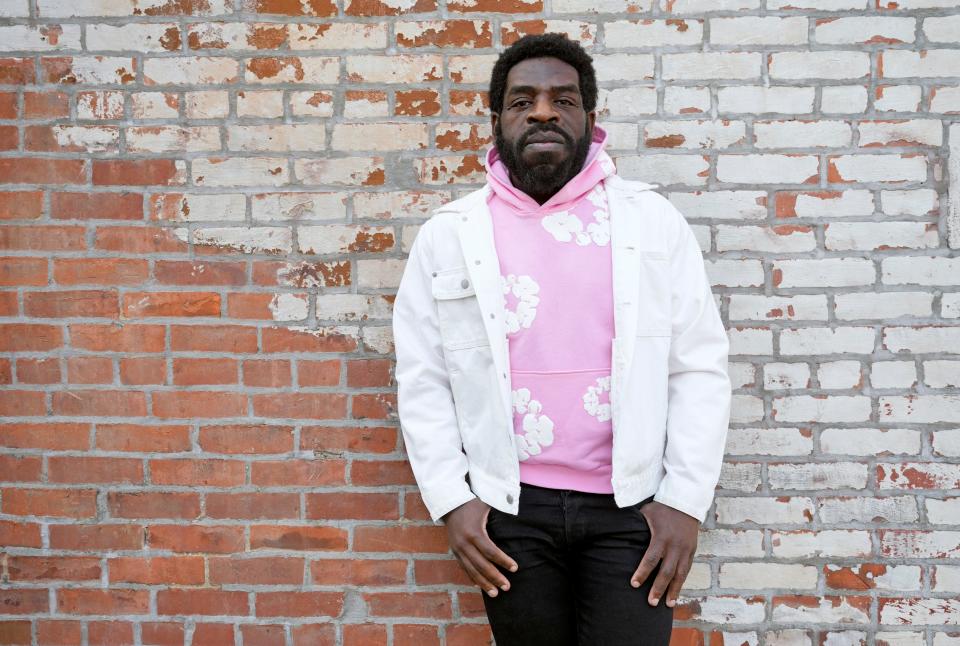
What's next?
What's in the works for the prolific Abdurraqib, whose mental cogs seemingly never stop churning? He certainly won't be resting on his laurels. The pots in which he has his hands are too numerous to list, but of course, he'll keep writing. And writing. And writing more.
He also will continue to serve as a nonfiction editor-at-large at Oregon-based Tin House publishing company, where he oversees the work of authors Prince Shakur and Athena Dixon and has amassed something of a fan club among the staff.
Masie Cochran, editorial director and interim publisher at Tin House, described his works as "gorgeous" and "hybrid in their structures,"
"The way he thinks about words and storytelling is enlightening and also spiriting," she said. "That's exactly the kind of work we need right now."
Cochran also praised Abdurraqib for championing "authors with distinct voices who have sort of been pushed to the margins," and for his self-admitted childlike curiosity.
"Hanif is also one of the most curious people I've ever known, whether it's basketball or baking or animals or whatever it is," she said. "He dives in with this full, open-minded curiosity and ebullience that is so rare.
"I feel lucky to be one of the people who gets to spend time with him."
Cochran posed a question that undoubtedly crosses the minds of anyone who knows Abdurraqib: How does he accomplish all that he does?
"I sometimes wonder how many hours he gets a day. I think he gets more than other people! I don't know how he does so much and does it so well," she said.
Modest to a fault, Abdurraqib takes such effusive praise humbly if a bit abashedly and with wonder that so many people consider him a pretty big deal. As for his work with Tin House, he'll stay as long as they'll have him.
"That's kind of up to them, though I do like the work I've done with them to this point," he said.
Naturally, Abdurraqib will continue to explore subjects that reflect his innumerable interests, but his primary focus, at least for the time being, is "There's Always This Year," he said.
"I'm mostly just looking forward to bringing this book into the world and doing the best I can to live alongside it."
This article originally appeared on The Columbus Dispatch: Columbus writer Hanif Abdurraqib's new book to be published March 26
